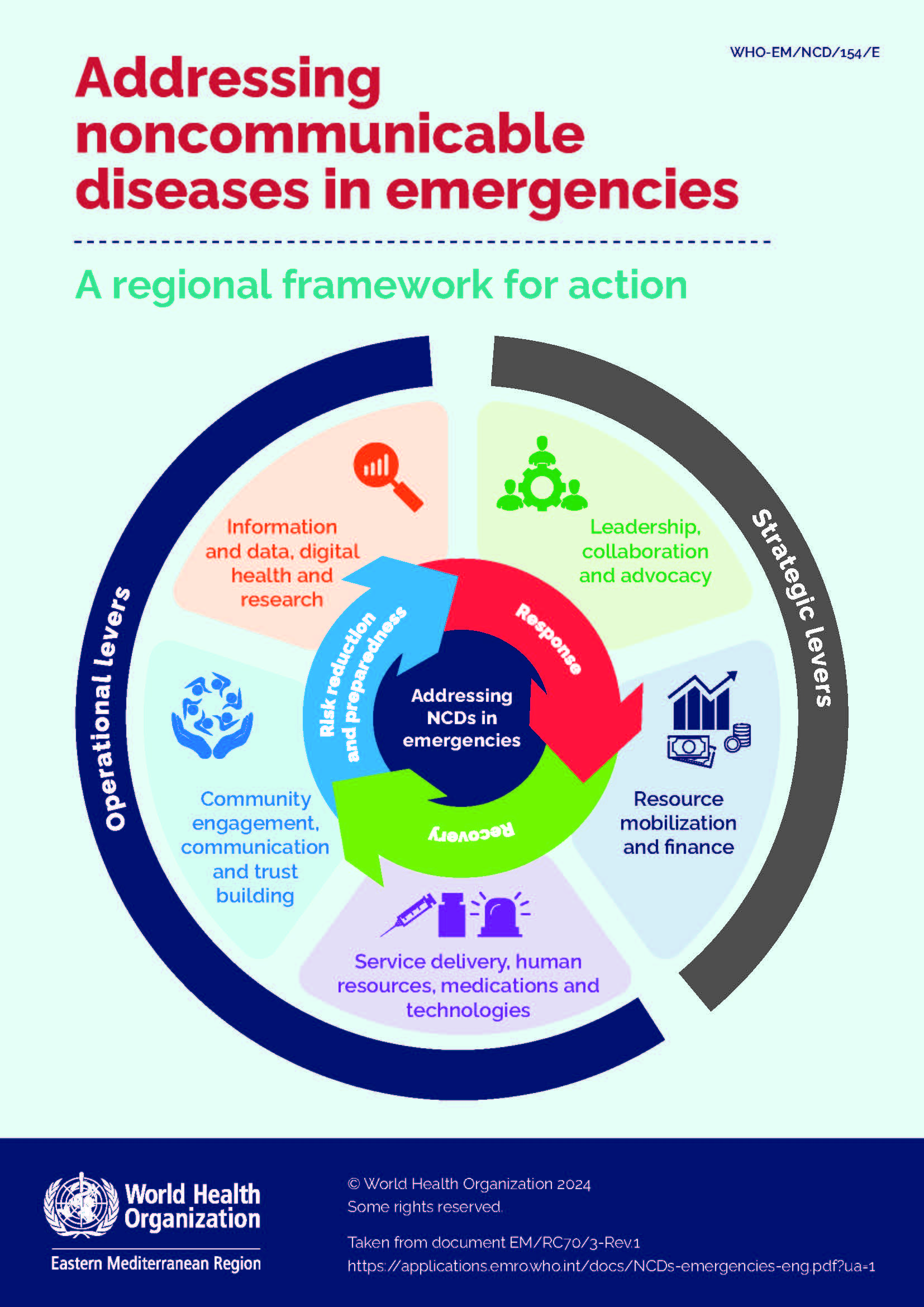
Addressing noncommunicable diseases in emergencies: a regional framework for action
Publication date: 2024
In October 2023, the WHO Regional Committee for the Eastern Mediterranean endorsed a regional framework for action on addressing NCDs in emergencies in the Region. The regional framework provides a set of strategic interventions and priority actions along with a list of progress indicators for countries to prevent and mitigate the impact of emergencies on people living with NCDs (PLWNCDs) and to ensure the continuity of all essential health services. It aligns with the different phases of the emergency cycle and offers actionable interventions across five thematic domains: leadership collaboration and advocacy; resource mobilization and finance; service delivery, human resources, medications and technologies; community engagement, communication and trust building; information and data, digital health and research.
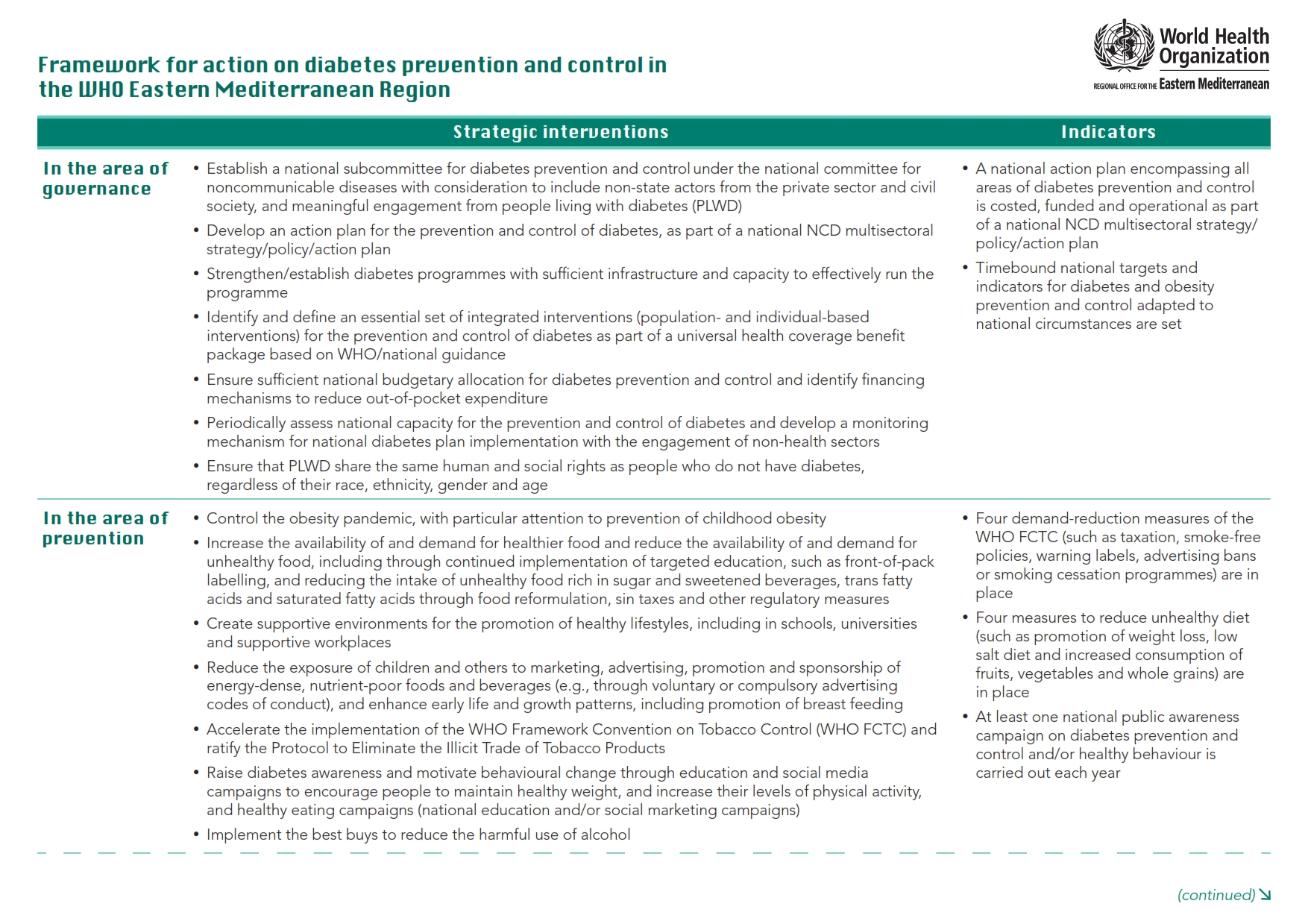
Framework for action on diabetes prevention and control in the WHO Eastern Mediterranean Region
Publication date: 2021
In October 2021, the WHO Regional Committee for the Eastern Mediterranean endorsed a regional framework to support countries scale up action on diabetes prevention and control in the Region. The regional framework provides strategic interventions and indicators for countries to assess their progress in the four domains of: governance; prevention; management; and surveillance and research.

Framework for action on cancer prevention and control in the WHO Eastern Mediterranean Region
Publication date: 2019
In October 2019, the WHO Regional Committee for the Eastern Mediterranean endorsed the updated regional framework to support countries scale up action on cancer prevention and control in the Region. The regional framework provides strategic interventions and indicators for countries to assess their progress in the six domains of: governance; prevention; early detection; management; palliative care; and surveillance and research.
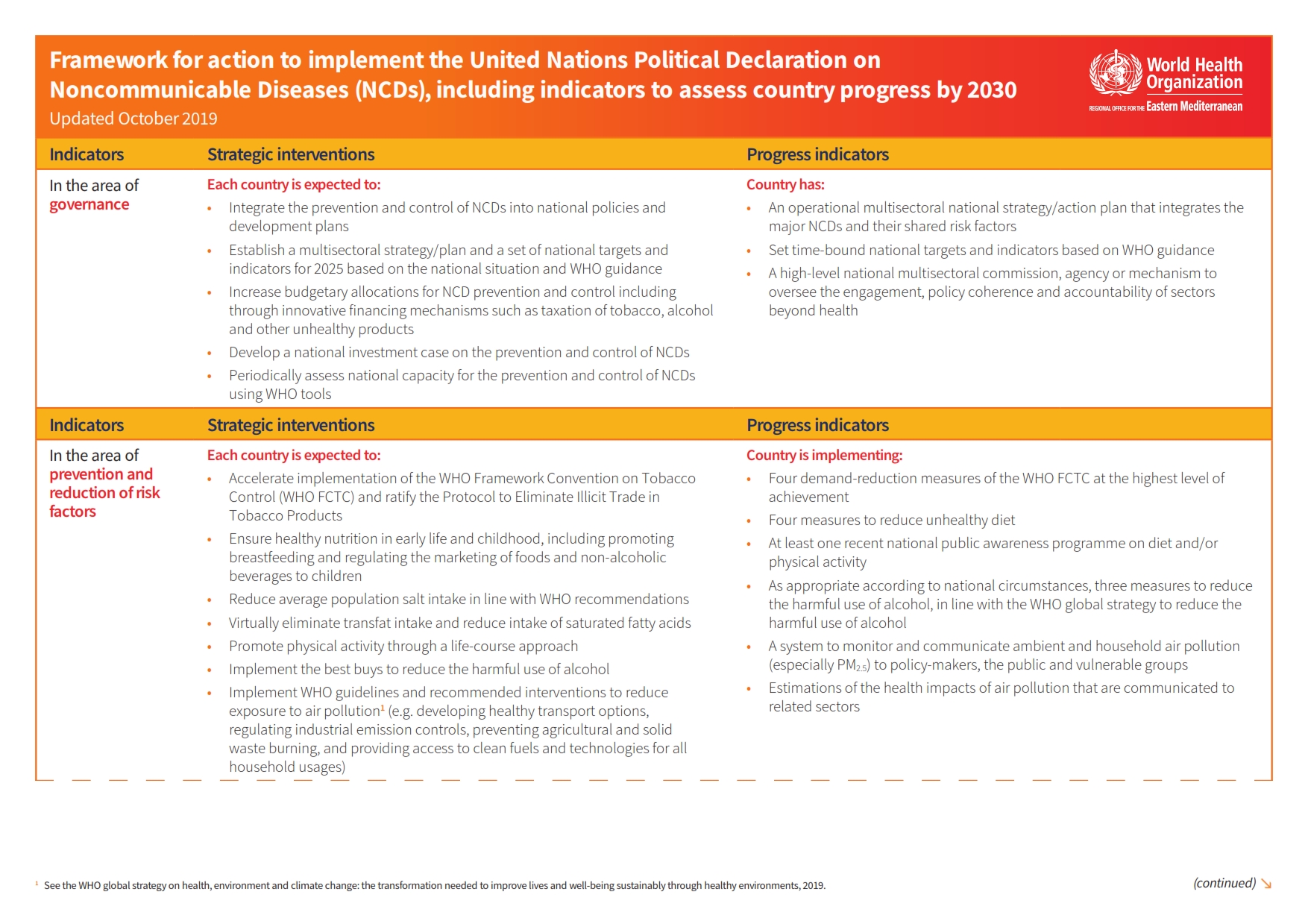
Framework for action to implement the United Nations Political Declaration on Noncommunicable Diseases (NCDs)
Publication date: 2019
In October 2019, the WHO Regional Committee for the Eastern Mediterranean endorsed the updated regional framework to support countries scale up action on NCD prevention and control. The regional framework provides strategic interventions and indicators for countries to assess their progress in the four domains of: governance; prevention and reduction of risk factors; surveillance, monitoring and evaluation; and health care.
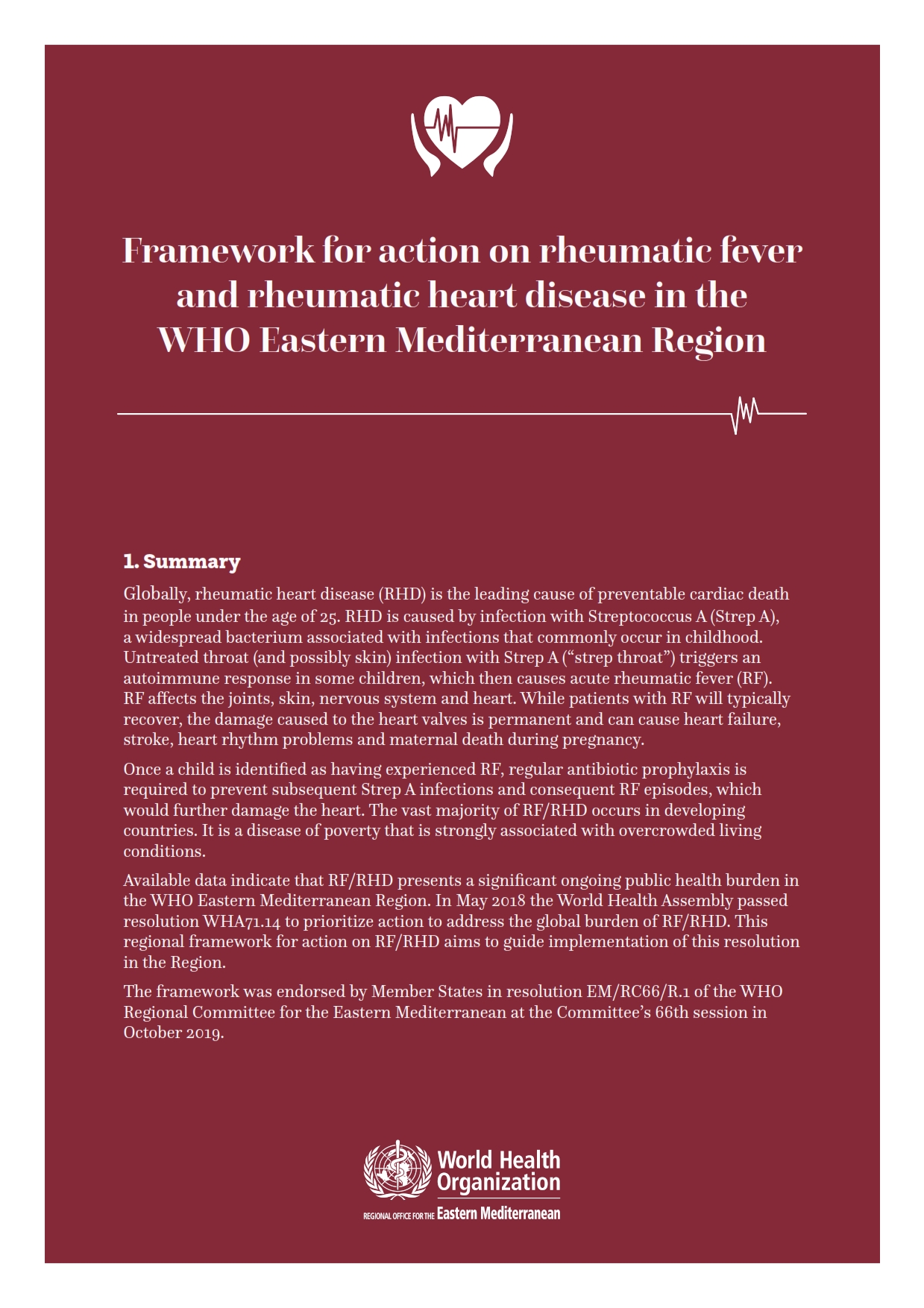
Framework for action on rheumatic fever and rheumatic heart disease in the WHO Eastern Mediterranean Region
Publication date: 2019
In October 2019, the WHO Regional Committee for the Eastern Mediterranean endorsed a regional framework to support countries scale up action on rheumatic fever and rheumatic heart disease in the Region. The regional framework provides strategic interventions and indicators for countries to assess their progress in the nine domains of: governance; primary prevention; secondary prevention; access to medicines; surveillance and monitoring; health workforce at the community and primary health care level; community awareness; tertiary care, including surgical intervention; and social determinants of health.
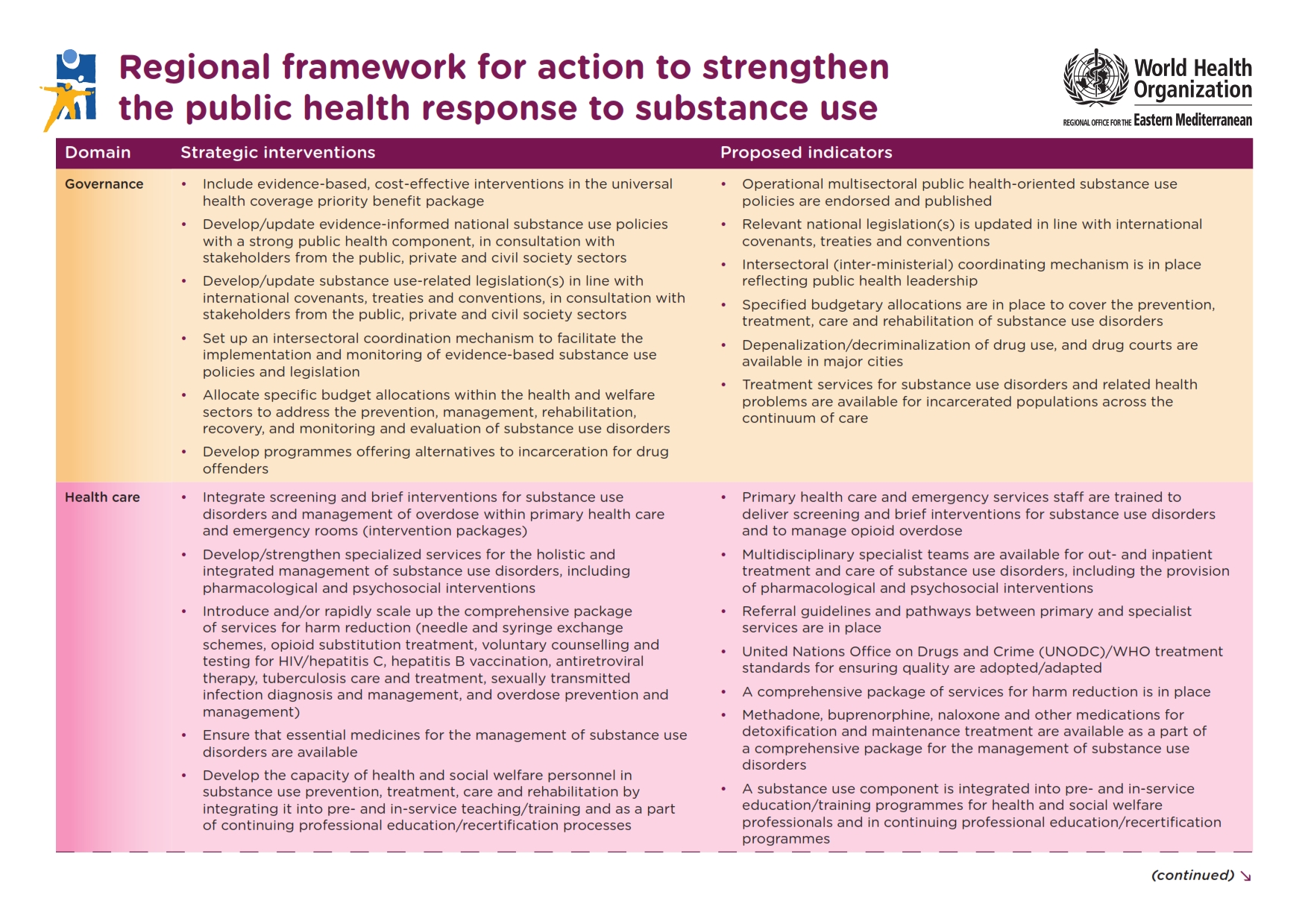
Regional framework for action to strengthen the public health response to substance use
Publication date: 2019
In October 2019, the WHO Regional Committee for the Eastern Mediterranean endorsed a regional framework to support countries scale up action on substance in the Region. The regional framework provides strategic interventions and indicators for countries to assess their progress in the five domains of: governance; health care; promotion and prevention; monitoring and surveillance; and international cooperation.
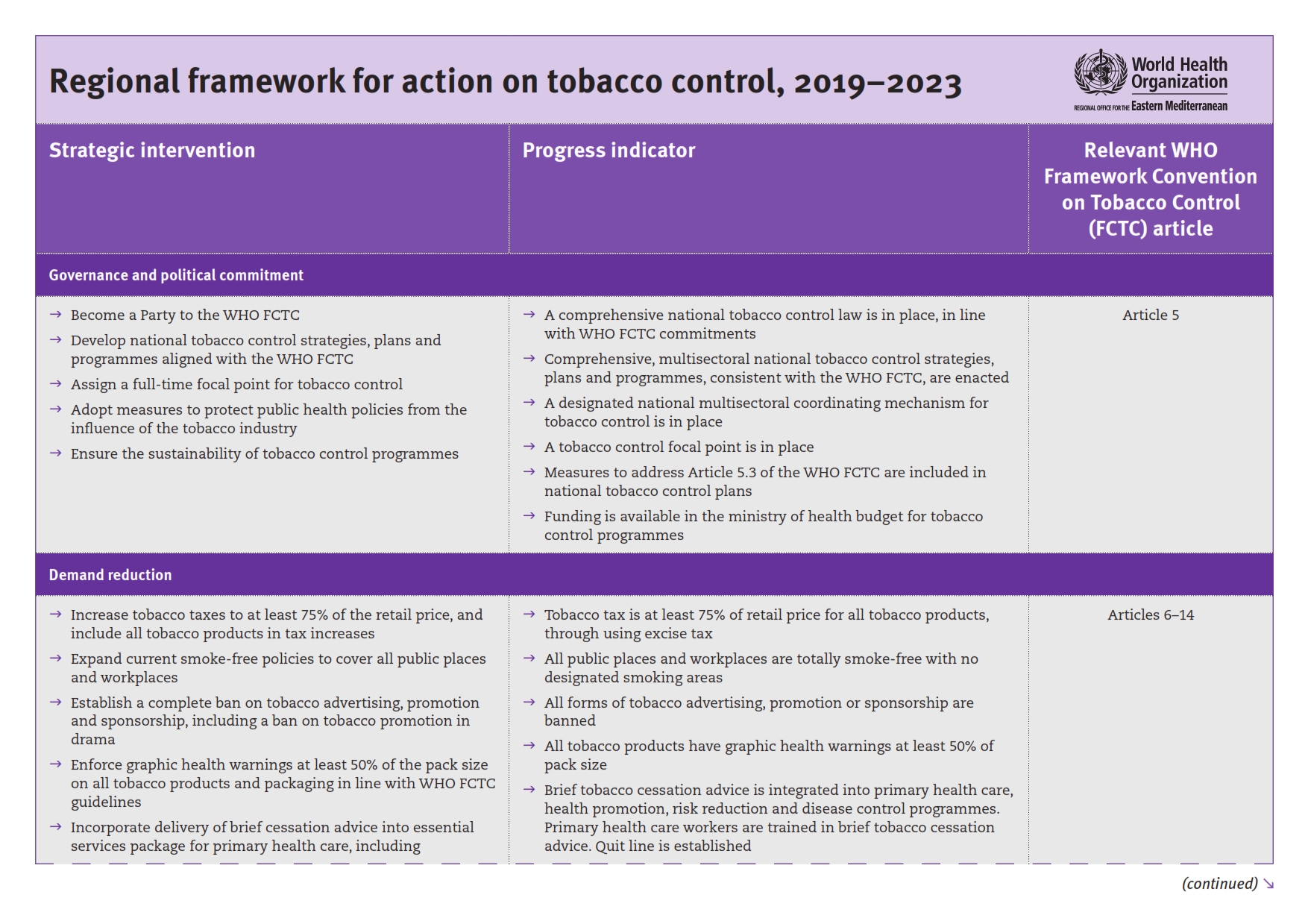
Regional framework for action on tobacco control
Publication date: 2018
In October 2018, the WHO Regional Committee for the Eastern Mediterranean endorsed a regional framework to support countries scale up action on tobacco control in the Region. The regional framework provides strategic interventions and indicators for countries to assess their progress in the four domains of: governance and political commitment; demand reduction; supply restriction; and surveillance, monitoring and research.
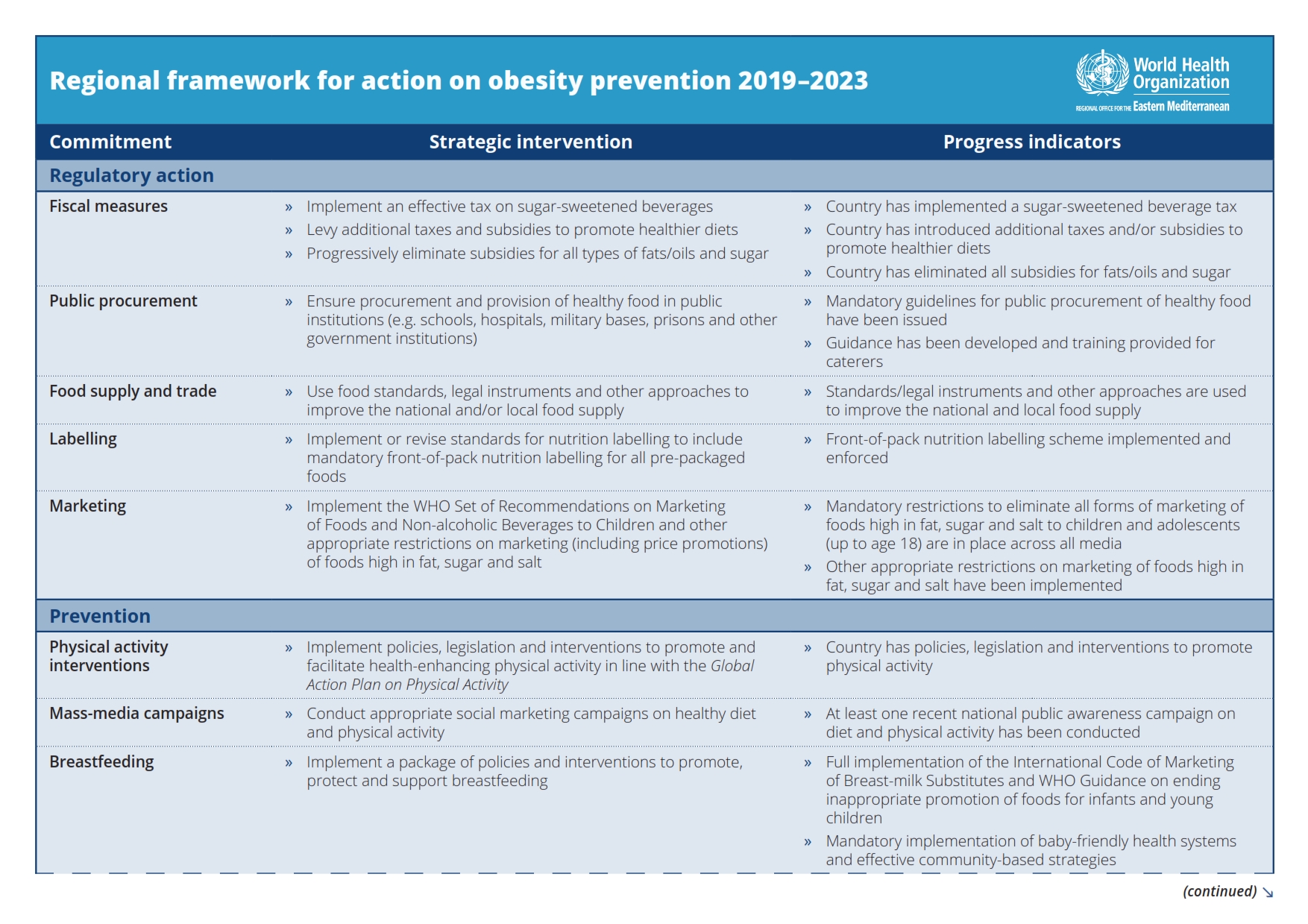
Regional framework for action on obesity prevention 2019–2023
Publication date: 2018
In October 2018, the WHO Regional Committee for the Eastern Mediterranean endorsed a regional framework to support countries scale up action on obesity prevention in the Region. The regional framework provides strategic interventions and indicators for countries to assess their progress in the four domains of: regulatory action (fiscal measures, public procurement, food supply and trade, labelling, and marketing); prevention (physical activity interventions, mass media campaigns, breastfeeding, and reformulation); obesity management and treatment (health sector interventions); and surveillance (assessment, and monitoring).
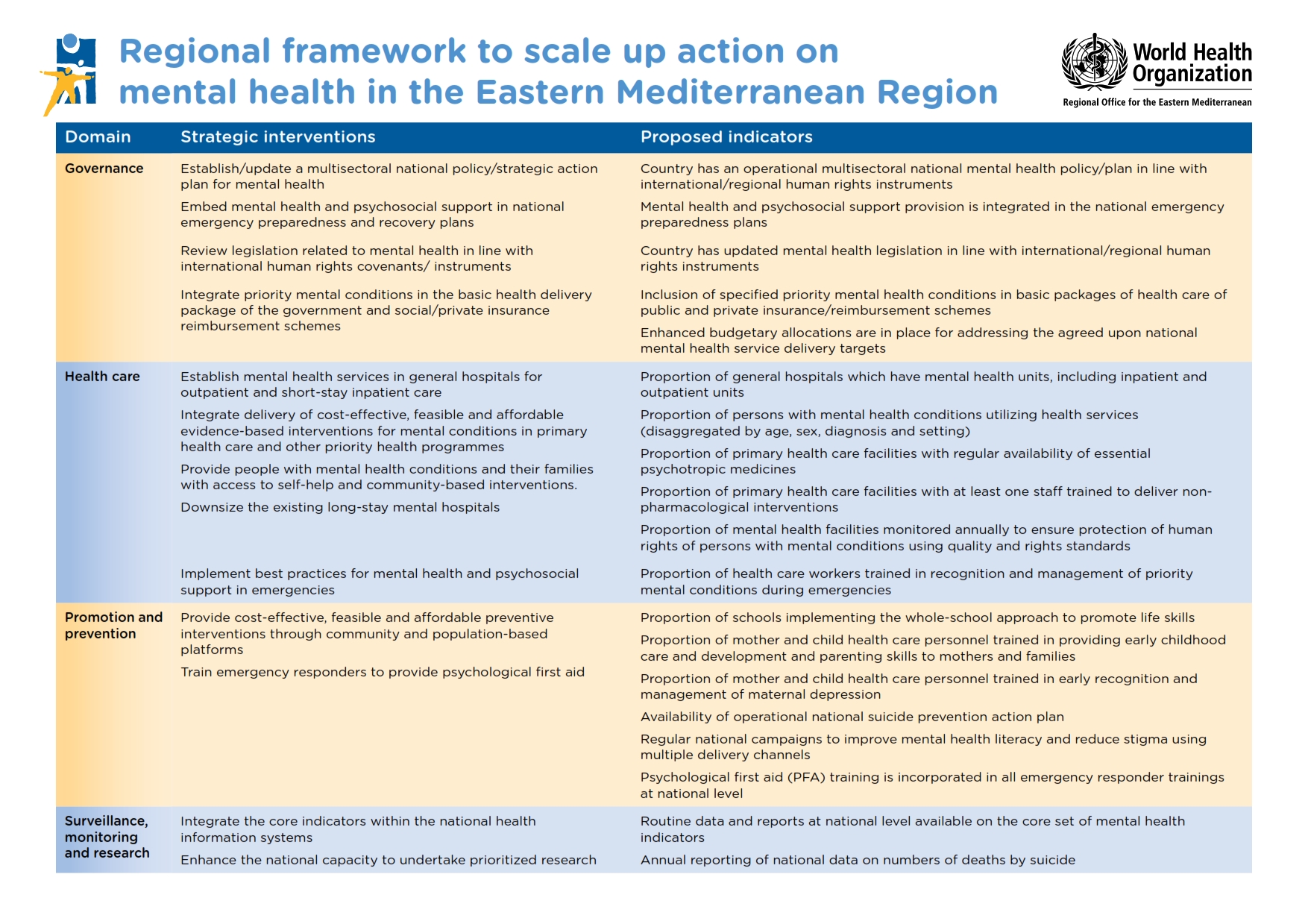
Regional framework to scale up action on mental health in the Eastern Mediterranean Region
Publication date: 2015
In October 2015, the WHO Regional Committee for the Eastern Mediterranean endorsed a regional framework to support countries scale up action on mental health in the Region. The regional framework provides strategic interventions and indicators for countries to assess their progress in the four domains of: governance; health care; promotion and prevention; and surveillance, monitoring and research.
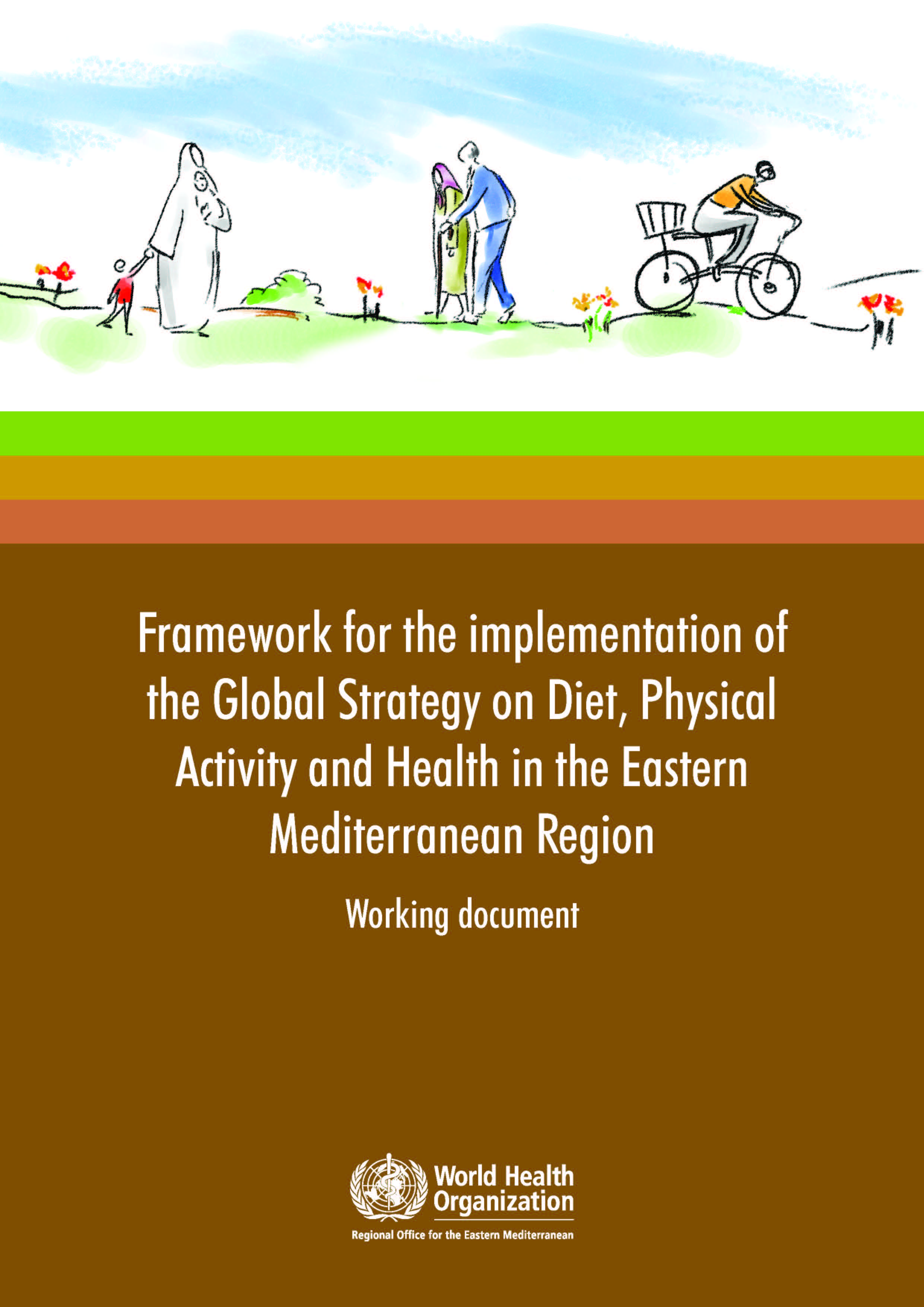
Framework for the implementation of the Global strategy on diet, physical activity and health in the Eastern Mediterranean Region
Publication date: 2010
Many of the major risk factors for noncommunicable diseases (NCDs) are closely related to physical inactivity and unhealthy diet. To address the growing burden of NCDs, WHO developed the Global strategy on diet, physical activity and health. This document provides a tool for countries of the Region to adapt and implement this strategy at national level. It takes into account the public health priorities, the target populations and the burden of NCDs in the Region, with particular emphasis on actions which countries can adapt and implement.


